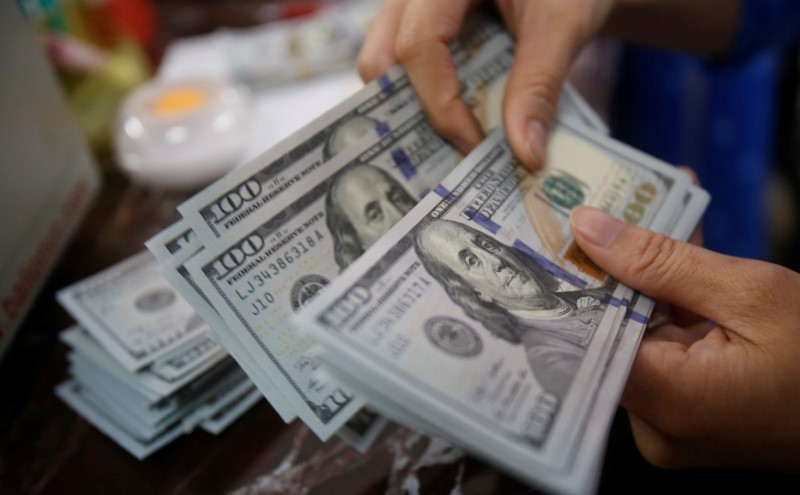By Gina Lee
Investing.com – The dollar was up on Wednesday morning in Asia, paused after a surge following Jerome Powell’s re-appointment as U.S. Federal Reserve Chairman. The New Zealand dollar eased after a smaller-than-expected rate hike from the Reserve Bank of New Zealand (RBNZ).
The U.S. Dollar Index that tracks the greenback against a basket of other currencies inched up 0.08% to 96.573 by 11:87 PM ET (4:18 AM GMT).
The USD/JPY pair edged down 0.11% to 115. The dollar hit a more-than-four-year high against the yen on Tuesday after two-year Treasury yields surged to their highest levels since March 2020, and Fed funds futures also priced a chance of three rate hikes in 2022.
The AUD/USD pair was down 0.32% to 0.7204 and the NZD/USD pair fell 0.63% to 0.6904.
The USD/CNY pair inched up 0.02% to 6.3920 while the GBP/USD pair inched down 0.01% to 1.3373.
RBNZ hiked its interest rate to 0.75% and raised its long-term cash rate projection by 50 bps as it handed down its policy decision earlier in the day, with the New Zealand dollar falling as far as 0.5% to $0.6915.
Investors had expected a bigger hike and long-term cash rate projection from the central bank, and interest rate swaps reversed sharply afterward.
“The unwind aggressive expectations might be a blueprint for other markets that have become similarly positioned, but in the meantime, the New Zealand dollar could be on the ropes against a rising dollar,” Westpac strategist Imre Speizer told Reuters.
"If it fell below $0.69, I think we're in danger of going below $0.68," he said.
The greenback hit its highest levels in 2021, with bets increasing that the Fed will hike interest rates sooner than expected in response to continuous inflationary pressures. Powell is also perceived to respond sooner and harder to inflation than Lael Brainard, who was also in the running to head the U.S. central bank.
The U.S. will release data, including the minutes from the Fed’s latest meeting, GDP, and initial jobless claims, on Wednesday ahead of a holiday on Thursday.
Across the Atlantic, the Turkish lira fell more than 11% in one session overnight. The lira’s collapse could lead to further capital outflows and potentially put pressure on emerging market currencies globally.
